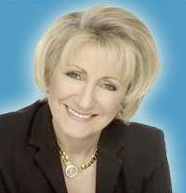Dr. Janet Hall Educational Programs Interview

Dr. Janet Hall Educational Programs Interview
Question: How do educational programs help in early childhood learning?Dr. Janet Hall: It has been said that 50% of all our learning occurs before the age of four! Young children are like sponges, soaking up facts and making sense of their world. Educational programs which have been carefully constructed to teach positive information about how the world works and how the child can best succeed in that world, are a great bonus to accelerate learning for the young child.
Educational DVDs teach children through visual and auditory stimulation which is so much more effective than the often boring presentations of a classroom teacher. The most important feature is the enrolment of the child's imagination when watching DVDs, where the child projects himself into the moving picture as if actually there. This enables much more powerful learning.
Educational DVDs present information via the visual medium that the children already enjoy! Young children have consistent access to television in most modern homes from an early age.Many young children are very capable with the technical use of the DVD equipment and can operate it independently of their parents.
A wise parent would want their child to watch educational programs rather than the commercial material with advertisements which often "brainwash" children to be consumers rather than independent thinkers.
Research has shown that children whose parents who get involved in their education have a better resilience in meeting life's future challenges and have better self-esteem.
For instance, Deborah and Bill were determined to help their son to achieve to his best potential at school, to have a good attitude to ongoing learning and believe in his own abilities. This was made possible by their commitment to a home-based DVD learning program, where they shared time with their child in watching regularly scheduled, fun and consistently successful DVDS.
Question: What types of messages are best conveyed through television programs and DVDs?
Dr. Janet Hall: 1. Facts about how things work and what they are.
2. How to solve problems and overcome adversity.
3. Resilience: What experiences can cause what feelings and how to cope with them.
Question: How does learning by example work for young children?
Dr. Janet Hall: Children, like adults, learn from what they see other people do. We don't have to actually have the experiences ourselves. Modelling (copying) comes from observing- things that we watch on television, DVDs and movies and things that we see others do and hear others say.
When children learn from educational DVDs they have the advantage of quickly understanding the lessons in the material, with the positive and negative consequences described in it, without having to endure the emotional pain or waste the time in real-life.
Question: Can educational programs help prepare young children to be ready for school?
Dr. Janet Hall: Children who have regularly watched educational programs are more likely to be prepared for school than those who haven't. The basic requirements for school learning are a willingness to pay attention and watch and listen. I have heard of first year school classes which have taken the teacher all year to simply teach the class to pay attention!
In contrast, watching educational DVDs will have conditioned pre-school children to be masters of this ability and be totally ready for school from the very first day.
Volume 2 of Guess With Jess, Casper's Scare School and Ben & Holly's Little Kingdom are available now on DVD and Volume 3 of these great educational shows will be released in November, 2010.
For more information please see: www.drjanethall.com.au
MORE



